Discover the Women of the Hall
These are the Inductees of the National Women’s Hall of Fame. Select any of the women to discover their stories and learn how they have influenced other women and this country.
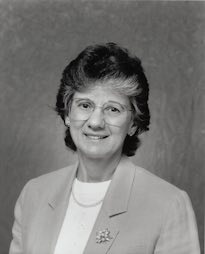
Rita Rossi Colwell
Dr. Rita R. Colwell became the first woman and first biologist to head the National Science Foundation in 1998, spearheading the agency’s emphases in K-12 science and mathematics education, graduate science and engineering education/training and the increased participation of women and minorities in science and engineering.
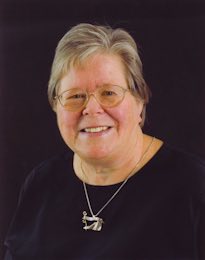
Judith L. Pipher
The first female to pursue infrared and submillimieter astronomy into ultra sensitive light detection of celestial bodies, Dr. Judith Pipher is a highly regarded infrared astronomer. As a professor with the University of Rochester for 31 years, she founded a group of observational infrared astronomers who took the first telescopic infrared pictures of starburst galaxies. Dr. Pipher was also instrumental in designing aspects of the NASA Spitzer Space Telescope, launched in 2003.
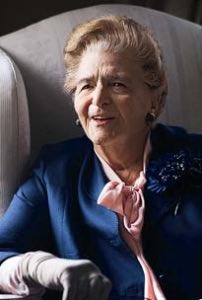
Catherine Filene Shouse
Known for her visionary work in education, arts, politics and women’s affairs, Catherine Filene Shouse was the first woman to receive a Masters Degree in Education from Harvard University and the first woman appointed to the Democratic National Committee in 1919. Ten years later, she launched the Institute for Women’s Professional Relations. An ardent supporter of the arts and arts education, Catherine Filene Shouse founded and was the major benefactor of the Wolf Trap National Park for the Performing Arts in Vienna, Virginia – the first and only national park dedicated to the performing arts. She was awarded the Presidential Medal of Freedom by President Gerald R. Ford in 1977.
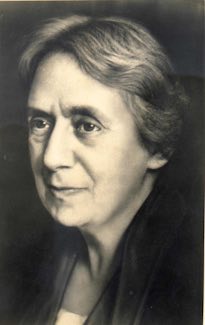
Henrietta Szold
The daughter of Hungarian immigrants, educator and social pioneer Henrietta Szold was an important figure in both American and Jewish history. In 1889, she opened a night school to educate immigrants in English and civics, creating a model for other night schools and immigrant education programs. Her groundbreaking work in the American Jewish community continued with her founding of Hadassah, the Women’s Zionist Organization of America, in 1912. Ms. Szold moved to pre-state Israel in 1920, continuing her work with the American Zionist Medical Unit, which she organized in 1918.
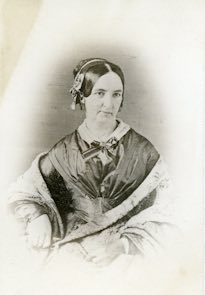
Martha Coffin Pelham Wright
Martha Coffin Pelham Wright was one of five visionary women who organized the first women’s rights convention in Seneca Falls, New York in 1848, forever changing the course of American history. She was also one of the few women who attended the 1833 founding meeting of the American Anti-Slavery Society. An accomplished author, she wrote for local and national publications on anti-slavery and women’s rights issues. She was elected President of the National Woman Suffrage Association in 1874, serving until her death in 1875.
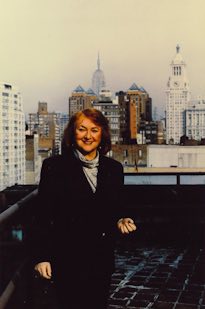
Eleanor K. Baum
As the former Dean of Engineering at Cooper Union and the Executive Director of the Cooper Union Research Foundation, Dr. Eleanor Baum is the first female engineer to be named dean of a college of engineering in the United States. In 1995, she became the first female president of the American Society for Engineering Education. An electrical engineer who has worked in the aerospace industry, Dr. Baum is a respected leader in recruitment and retention of women in the engineering profession.

Rita Rossi Colwell
Dr. Rita R. Colwell became the first woman and first biologist to head the National Science Foundation in 1998, spearheading the agency’s emphases in K-12 science and mathematics education, graduate science and engineering education/training and the increased participation of women and minorities in science and engineering.

Judith L. Pipher
The first female to pursue infrared and submillimieter astronomy into ultra sensitive light detection of celestial bodies, Dr. Judith Pipher is a highly regarded infrared astronomer. As a professor with the University of Rochester for 31 years, she founded a group of observational infrared astronomers who took the first telescopic infrared pictures of starburst galaxies. Dr. Pipher was also instrumental in designing aspects of the NASA Spitzer Space Telescope, launched in 2003.

Catherine Filene Shouse
Known for her visionary work in education, arts, politics and women’s affairs, Catherine Filene Shouse was the first woman to receive a Masters Degree in Education from Harvard University and the first woman appointed to the Democratic National Committee in 1919. Ten years later, she launched the Institute for Women’s Professional Relations. An ardent supporter of the arts and arts education, Catherine Filene Shouse founded and was the major benefactor of the Wolf Trap National Park for the Performing Arts in Vienna, Virginia – the first and only national park dedicated to the performing arts. She was awarded the Presidential Medal of Freedom by President Gerald R. Ford in 1977.

Henrietta Szold
The daughter of Hungarian immigrants, educator and social pioneer Henrietta Szold was an important figure in both American and Jewish history. In 1889, she opened a night school to educate immigrants in English and civics, creating a model for other night schools and immigrant education programs. Her groundbreaking work in the American Jewish community continued with her founding of Hadassah, the Women’s Zionist Organization of America, in 1912. Ms. Szold moved to pre-state Israel in 1920, continuing her work with the American Zionist Medical Unit, which she organized in 1918.

Martha Coffin Pelham Wright
Martha Coffin Pelham Wright was one of five visionary women who organized the first women’s rights convention in Seneca Falls, New York in 1848, forever changing the course of American history. She was also one of the few women who attended the 1833 founding meeting of the American Anti-Slavery Society. An accomplished author, she wrote for local and national publications on anti-slavery and women’s rights issues. She was elected President of the National Woman Suffrage Association in 1874, serving until her death in 1875.

Eleanor K. Baum
As the former Dean of Engineering at Cooper Union and the Executive Director of the Cooper Union Research Foundation, Dr. Eleanor Baum is the first female engineer to be named dean of a college of engineering in the United States. In 1995, she became the first female president of the American Society for Engineering Education. An electrical engineer who has worked in the aerospace industry, Dr. Baum is a respected leader in recruitment and retention of women in the engineering profession.

Julia Child
A graduate of Smith College, Julia Child went on to attend classes at Le Cordon Bleu in Paris. The famous American cook, author, and television personality introduced French cuisine and cooking techniques to America through her cookbooks and television programs. Her most famous works include the 1961 cookbook Mastering the Art of French Cooking and the television series The French Chef, which premiered in 1963. She is widely credited with demystifying the art of fine cooking.
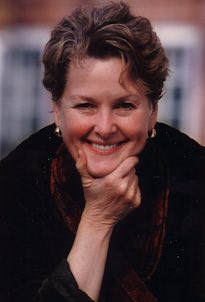
Swanee Hunt
Swanee Hunt is the former Director of the Women and Public Policy Program at Harvard University’s Kennedy School of Government. An internationally recognized expert on foreign affairs and diplomacy, Hunt is heralded for her trailblazing work to increase the participation and inclusion of women in peace processes around the world. She is also President of Hunt Alternatives Fund, a private foundation committed to advancing social change at local, national and global levels.
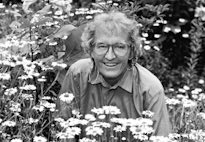
Elisabeth Kübler-Ross
After graduating from the University of Zurich medical school, Dr. Elisabeth Kübler-Ross married and moved to the United States. She began working in hospitals, where she was appalled at the treatment of terminally ill patients. Her 1969 bestseller On Death and Dying revolutionized the medical profession’s treatment and understanding of dying patients, serving as a voice for the rights of the terminally ill. Her work was a catalyst for now commonly accepted ideas such as hospice care, living wills, and death with dignity.

Winona LaDuke
A graduate of Harvard and Antioch Universities, Winona LaDuke advocates for public support and funding for frontline native environmental groups. In 1994, she was nominated by Time Magazine as one of America’s most promising leaders under forty years of age. In 1998, she was named Ms. Magazine Woman of the Year. Ms. LaDuke was the vice-presidential candidate on the Green Party ticket in both 1996 and 2000. She currently serves as director of the White Earth Land Recovery Project in Minnesota.
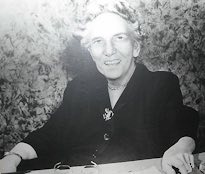
Rebecca Talbot Perkins
In 1927, a time when very few agencies existed to promote adoption, Rebecca Talbot Perkins joined with the Alliance of Women’s Clubs of Brooklyn to create The Rebecca Talbot Perkins Adoption Society. Later known as Talbot Perkins Children’s Services, the organization provided foster care and adoption services to countless families across the country for 75 years. Throughout her lifetime, Perkins was active in various charitable and civic causes as a member of the Brooklyn Women’s Suffrage Society, chair of the Alliance of Women’s Clubs of Brooklyn, Vice President of the Memorial Hospital for Women and Children, and a director of the Welcome Home for Girls.
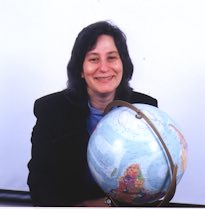
Susan Solomon
An internationally recognized leader in the field of atmospheric science, Susan Solomon pioneered the theory explaining how and why the ozone hole occurs in Antarctica, and obtained some of the first chemical measurements that established man-made chlorofluorocarbons (CFCs) as its cause. Solomon is the recipient of numerous awards, including the 1999 National Medal of Science and the Asahi Foundation of Japan’s Blue Planet Prize in 2004. From 2002-2008, Solomon served as the co-chair of the Intergovernmental Panel on Climate Change (IPCC), which shared the Nobel Peace Prize with Albert Gore, Jr. in 2007. Solomon’s current research as a senior scientist with the National Oceanic Atmospheric Administration focuses on climate change, ozone depletion and the links between the two.

Julia Child
A graduate of Smith College, Julia Child went on to attend classes at Le Cordon Bleu in Paris. The famous American cook, author, and television personality introduced French cuisine and cooking techniques to America through her cookbooks and television programs. Her most famous works include the 1961 cookbook Mastering the Art of French Cooking and the television series The French Chef, which premiered in 1963. She is widely credited with demystifying the art of fine cooking.

Swanee Hunt
Swanee Hunt is the former Director of the Women and Public Policy Program at Harvard University’s Kennedy School of Government. An internationally recognized expert on foreign affairs and diplomacy, Hunt is heralded for her trailblazing work to increase the participation and inclusion of women in peace processes around the world. She is also President of Hunt Alternatives Fund, a private foundation committed to advancing social change at local, national and global levels.

Elisabeth Kübler-Ross
After graduating from the University of Zurich medical school, Dr. Elisabeth Kübler-Ross married and moved to the United States. She began working in hospitals, where she was appalled at the treatment of terminally ill patients. Her 1969 bestseller On Death and Dying revolutionized the medical profession’s treatment and understanding of dying patients, serving as a voice for the rights of the terminally ill. Her work was a catalyst for now commonly accepted ideas such as hospice care, living wills, and death with dignity.

Winona LaDuke
A graduate of Harvard and Antioch Universities, Winona LaDuke advocates for public support and funding for frontline native environmental groups. In 1994, she was nominated by Time Magazine as one of America’s most promising leaders under forty years of age. In 1998, she was named Ms. Magazine Woman of the Year. Ms. LaDuke was the vice-presidential candidate on the Green Party ticket in both 1996 and 2000. She currently serves as director of the White Earth Land Recovery Project in Minnesota.

Rebecca Talbot Perkins
In 1927, a time when very few agencies existed to promote adoption, Rebecca Talbot Perkins joined with the Alliance of Women’s Clubs of Brooklyn to create The Rebecca Talbot Perkins Adoption Society. Later known as Talbot Perkins Children’s Services, the organization provided foster care and adoption services to countless families across the country for 75 years. Throughout her lifetime, Perkins was active in various charitable and civic causes as a member of the Brooklyn Women’s Suffrage Society, chair of the Alliance of Women’s Clubs of Brooklyn, Vice President of the Memorial Hospital for Women and Children, and a director of the Welcome Home for Girls.

Susan Solomon
An internationally recognized leader in the field of atmospheric science, Susan Solomon pioneered the theory explaining how and why the ozone hole occurs in Antarctica, and obtained some of the first chemical measurements that established man-made chlorofluorocarbons (CFCs) as its cause. Solomon is the recipient of numerous awards, including the 1999 National Medal of Science and the Asahi Foundation of Japan’s Blue Planet Prize in 2004. From 2002-2008, Solomon served as the co-chair of the Intergovernmental Panel on Climate Change (IPCC), which shared the Nobel Peace Prize with Albert Gore, Jr. in 2007. Solomon’s current research as a senior scientist with the National Oceanic Atmospheric Administration focuses on climate change, ozone depletion and the links between the two.
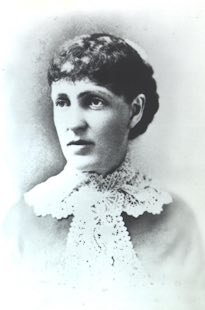
Kate Stoneman
Kate Stoneman was the first woman admitted to practice law in New York State. In 1885, she became the first female to pass the New York State Bar Exam, but her 1886 application to join the bar was rejected because of her gender. Stoneman immediately launched a lobbying campaign to amend the Code of Civil Procedure to permit the admission of qualified applicants without regard to sex or race, and was successfully admitted to the bar later the same month. In 1898, she became the first female graduate of Albany Law School, and was the first woman to receive a bachelor’s degree from any department of Union University.
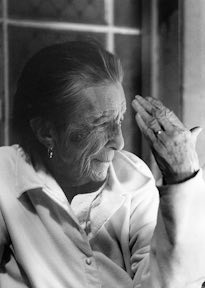
Louise Bourgeois
One of the world’s most preeminent artists, Louise Bourgeois’s career spanned over seven decades. Best known for her work as a sculptor, Bourgeois used a variety of materials including wood, metal, marble and latex to create works often reflective of her childhood experiences and life relationships. In 1982, Bourgeois became the first female artist to be given a retrospective at The Museum of Modern Art in New York, and in 1997 she was awarded the National Medal of Arts. Her varied and extensive body of work has been displayed in the collections of major museums worldwide.
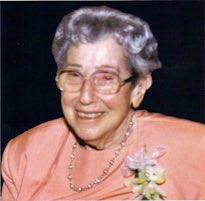
Mildred Cohn
A groundbreaking scientist in several important areas of biological research, Mildred Cohn pioneered research that helped form the scientific understanding of mechanisms of enzymatic reactions and the methods of studying them. In 1946, she introduced the use of isotopic oxygen 18 to study metabolic processes and enzyme mechanisms. She later applied nuclear magnetic resonance (NMR) and electron paramagnetic resonance (EPR) to investigate metabolism and metabolic intermediates. Cohn has published more than 150 scientific papers and has received several awards for her work, including the National Medal of Science in 1982.
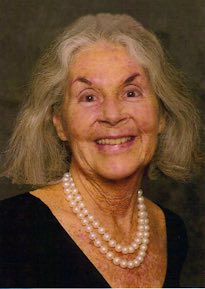
Karen DeCrow
A nationally recognized attorney, author and activist, Karen DeCrow is one of the most celebrated leaders of the women’s movement. From 1974-1977, she served as the National President of the National Organization for Women (NOW), where she was instrumental in obtaining significant legislative and legal gains and tirelessly advocated on behalf of the Equal Rights Amendment (ERA). DeCrow has written numerous books and articles and has lectured throughout the world on topics such as law, gender equality, and politics. In 1970, she served as National Coordinator of the Women’s Strike, and in 1988 she co-founded World Women Watch.
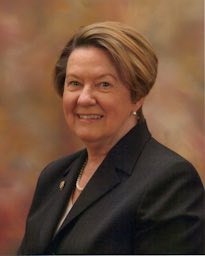
Susan Kelly-Dreiss
Susan Kelly-Dreiss has worked for over 30 years to enact legal protections, implement innovative services and heighten public awareness on behalf of battered women and their children. In 1976, Kelly-Dreiss lobbied for passage of Pennsylvania’s first domestic violence law, and later that same year, she co-founded the nation’s first domestic violence coalition, the Pennsylvania Coalition Against Domestic Violence (PCADV). She was a founding member of the National Network to End Domestic Violence, and has played a key role in drafting federal legislation including the Federal Violence Prevention and Services Act and the Violence Against Women Act.
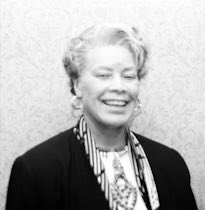
Allie B. Latimer
An attorney, civil rights activist and humanitarian, Allie B. Latimer was instrumental in organizing Federally Employed Women (FEW) in 1968, and served as the organization’s founding president until 1969. In 1977, as a federal attorney, Latimer was the first African American and first woman to serve as General Counsel of a major federal agency as well as the first African American and first woman to attain the GS-18 salary level at the General Services Administration. She was also recognized as part of the ‘second wave of feminist pioneers’ by the Veteran Feminists of America (VFA).

Kate Stoneman
Kate Stoneman was the first woman admitted to practice law in New York State. In 1885, she became the first female to pass the New York State Bar Exam, but her 1886 application to join the bar was rejected because of her gender. Stoneman immediately launched a lobbying campaign to amend the Code of Civil Procedure to permit the admission of qualified applicants without regard to sex or race, and was successfully admitted to the bar later the same month. In 1898, she became the first female graduate of Albany Law School, and was the first woman to receive a bachelor’s degree from any department of Union University.

Louise Bourgeois
One of the world’s most preeminent artists, Louise Bourgeois’s career spanned over seven decades. Best known for her work as a sculptor, Bourgeois used a variety of materials including wood, metal, marble and latex to create works often reflective of her childhood experiences and life relationships. In 1982, Bourgeois became the first female artist to be given a retrospective at The Museum of Modern Art in New York, and in 1997 she was awarded the National Medal of Arts. Her varied and extensive body of work has been displayed in the collections of major museums worldwide.

Mildred Cohn
A groundbreaking scientist in several important areas of biological research, Mildred Cohn pioneered research that helped form the scientific understanding of mechanisms of enzymatic reactions and the methods of studying them. In 1946, she introduced the use of isotopic oxygen 18 to study metabolic processes and enzyme mechanisms. She later applied nuclear magnetic resonance (NMR) and electron paramagnetic resonance (EPR) to investigate metabolism and metabolic intermediates. Cohn has published more than 150 scientific papers and has received several awards for her work, including the National Medal of Science in 1982.

Karen DeCrow
A nationally recognized attorney, author and activist, Karen DeCrow is one of the most celebrated leaders of the women’s movement. From 1974-1977, she served as the National President of the National Organization for Women (NOW), where she was instrumental in obtaining significant legislative and legal gains and tirelessly advocated on behalf of the Equal Rights Amendment (ERA). DeCrow has written numerous books and articles and has lectured throughout the world on topics such as law, gender equality, and politics. In 1970, she served as National Coordinator of the Women’s Strike, and in 1988 she co-founded World Women Watch.

Susan Kelly-Dreiss
Susan Kelly-Dreiss has worked for over 30 years to enact legal protections, implement innovative services and heighten public awareness on behalf of battered women and their children. In 1976, Kelly-Dreiss lobbied for passage of Pennsylvania’s first domestic violence law, and later that same year, she co-founded the nation’s first domestic violence coalition, the Pennsylvania Coalition Against Domestic Violence (PCADV). She was a founding member of the National Network to End Domestic Violence, and has played a key role in drafting federal legislation including the Federal Violence Prevention and Services Act and the Violence Against Women Act.

Allie B. Latimer
An attorney, civil rights activist and humanitarian, Allie B. Latimer was instrumental in organizing Federally Employed Women (FEW) in 1968, and served as the organization’s founding president until 1969. In 1977, as a federal attorney, Latimer was the first African American and first woman to serve as General Counsel of a major federal agency as well as the first African American and first woman to attain the GS-18 salary level at the General Services Administration. She was also recognized as part of the ‘second wave of feminist pioneers’ by the Veteran Feminists of America (VFA).
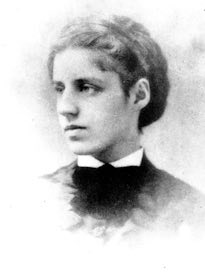
Emma Lazarus
“Give me your tired, your poor, your huddled masses yearning to breathe free.” These famous words from The New Colossus, were written by Emma Lazarus, one of the first successful Jewish American authors. Originally created in 1883, the sonnet was later engraved in bronze and placed at the base of the Statue of Liberty. Throughout her lifetime, Lazarus authored and published numerous poems, essays, letters, short stories and translations. She was an important forerunner of the Zionist movement, having argued for the creation of a Jewish homeland thirteen years before the term Zionist was even coined.
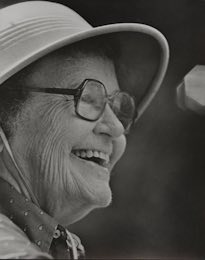
Ruth Patrick
A pioneer in the field of limnology – the scientific study of the life and phenomena of fresh water, especially lakes and ponds – Ruth Patrick provided methods needed to monitor water pollution and understand its effects. Patrick is credited, along with Rachel Carson, as being largely responsible for ushering in the current worldwide concerns with ecology. She was the first female elected chair of the board of the Academy of Natural Sciences and received the National Medal of Science in 1996.
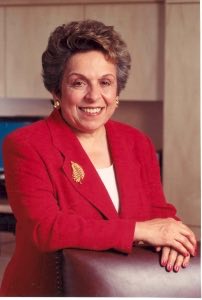
Donna E. Shalala
A groundbreaking educator and politician, Dr. Donna Shalala has more than thirty years of experience as an accomplished scholar, teacher and administrator. Dr. Shalala is recognized as the longest serving United States Secretary of Health and Human Services (1993-2001) and is the current President of the University of Miami. From 1980-1987, Dr. Shalala served as the president of Hunter College, and from 1987-1993, she was the chancellor of the University of Wisconsin-Madison. Dr. Shalala is the recipient of more than three dozen honorary degrees and was awarded the Presidential Medal of Freedom in 2008.
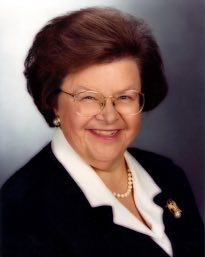
Barbara A. Mikulski
The first female Democratic United States Senator elected in her own right, Barbara Mikulski has been a political trailblazer for more than thirty years. During her tenure as a Senator, Mikulski has developed and supported legislation promoting equal healthcare for American women, Medicare reform, better care for veterans, greater student access to quality education, increased funding for scientific research, and more. Senator Mikulski currently serves as the Dean of the Women in the Senate, and is a senior member of the Health, Education, Labor and Pensions Committee; a senior member of the Appropriations Committee; and a member of the Senate Select Committee on Intelligence. In 2011, Senator Mikulski officially became the longest serving female Senator in United States history.

Kathrine Switzer
As the first woman to officially enter the Boston Marathon (1967), Kathrine Switzer broke the gender barrier and paved the way for women in running. Still recognized as a leader in the running world, Switzer has completed over thirty-seven marathons and has dedicated her career to creating opportunities and equal sport status for women. In 1977, she founded the Avon International Running Circuit, and in 1984, she was a leader in making the women’s marathon an official event in the Olympic Games. Switzer is an Emmy Award-winning television commentator who has broadcasted for ABC, CBS, NBC and ESPN.
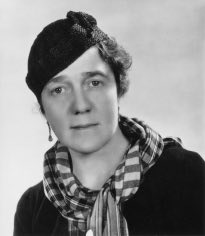
Dorothy Harrison Eustis
A philanthropist, Dorothy Harrison Eustis combined her love of animals and her passion for helping others to co-found the nation’s first dog guide school, The Seeing Eye. In 1921, Eustis began her career in Switzerland, breeding German shepherds for civic duty. She was later contacted by Morris Frank, a blind American man seeking a guide dog. After bringing Frank to Switzerland and providing him with a dog, Eustis returned to the United States, and in 1929, they established The Seeing Eye to help blind people achieve greater independence, dignity and self-confidence through the use of Seeing Eye dogs. To date, The Seeing Eye has bred and trained 15,000 dogs to assist nearly 8,000 men and women.

Emma Lazarus
“Give me your tired, your poor, your huddled masses yearning to breathe free.” These famous words from The New Colossus, were written by Emma Lazarus, one of the first successful Jewish American authors. Originally created in 1883, the sonnet was later engraved in bronze and placed at the base of the Statue of Liberty. Throughout her lifetime, Lazarus authored and published numerous poems, essays, letters, short stories and translations. She was an important forerunner of the Zionist movement, having argued for the creation of a Jewish homeland thirteen years before the term Zionist was even coined.

Ruth Patrick
A pioneer in the field of limnology – the scientific study of the life and phenomena of fresh water, especially lakes and ponds – Ruth Patrick provided methods needed to monitor water pollution and understand its effects. Patrick is credited, along with Rachel Carson, as being largely responsible for ushering in the current worldwide concerns with ecology. She was the first female elected chair of the board of the Academy of Natural Sciences and received the National Medal of Science in 1996.

Donna E. Shalala
A groundbreaking educator and politician, Dr. Donna Shalala has more than thirty years of experience as an accomplished scholar, teacher and administrator. Dr. Shalala is recognized as the longest serving United States Secretary of Health and Human Services (1993-2001) and is the current President of the University of Miami. From 1980-1987, Dr. Shalala served as the president of Hunter College, and from 1987-1993, she was the chancellor of the University of Wisconsin-Madison. Dr. Shalala is the recipient of more than three dozen honorary degrees and was awarded the Presidential Medal of Freedom in 2008.

Barbara A. Mikulski
The first female Democratic United States Senator elected in her own right, Barbara Mikulski has been a political trailblazer for more than thirty years. During her tenure as a Senator, Mikulski has developed and supported legislation promoting equal healthcare for American women, Medicare reform, better care for veterans, greater student access to quality education, increased funding for scientific research, and more. Senator Mikulski currently serves as the Dean of the Women in the Senate, and is a senior member of the Health, Education, Labor and Pensions Committee; a senior member of the Appropriations Committee; and a member of the Senate Select Committee on Intelligence. In 2011, Senator Mikulski officially became the longest serving female Senator in United States history.

Kathrine Switzer
As the first woman to officially enter the Boston Marathon (1967), Kathrine Switzer broke the gender barrier and paved the way for women in running. Still recognized as a leader in the running world, Switzer has completed over thirty-seven marathons and has dedicated her career to creating opportunities and equal sport status for women. In 1977, she founded the Avon International Running Circuit, and in 1984, she was a leader in making the women’s marathon an official event in the Olympic Games. Switzer is an Emmy Award-winning television commentator who has broadcasted for ABC, CBS, NBC and ESPN.

Dorothy Harrison Eustis
A philanthropist, Dorothy Harrison Eustis combined her love of animals and her passion for helping others to co-found the nation’s first dog guide school, The Seeing Eye. In 1921, Eustis began her career in Switzerland, breeding German shepherds for civic duty. She was later contacted by Morris Frank, a blind American man seeking a guide dog. After bringing Frank to Switzerland and providing him with a dog, Eustis returned to the United States, and in 1929, they established The Seeing Eye to help blind people achieve greater independence, dignity and self-confidence through the use of Seeing Eye dogs. To date, The Seeing Eye has bred and trained 15,000 dogs to assist nearly 8,000 men and women.
